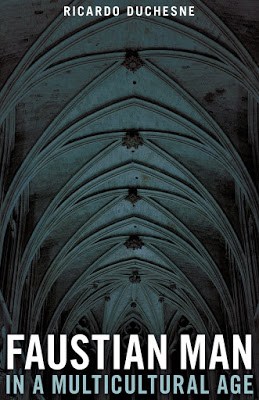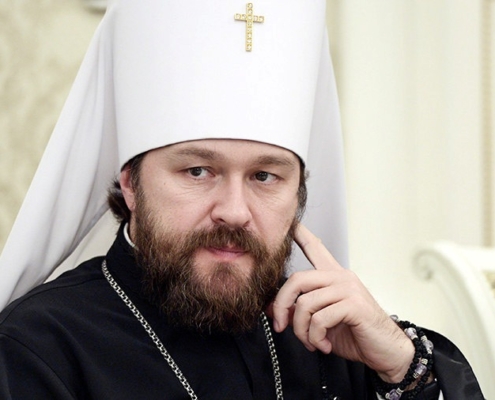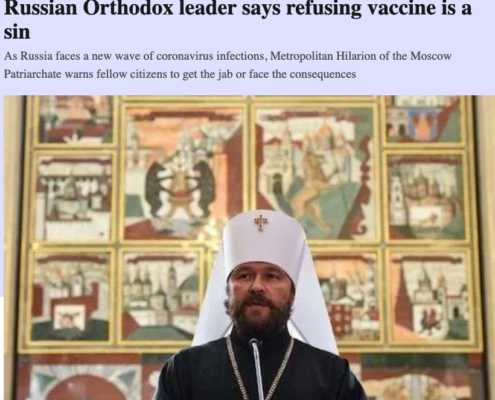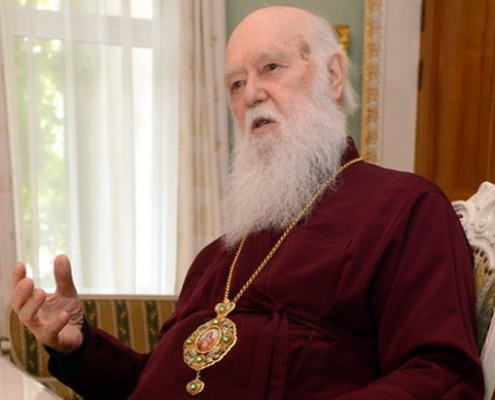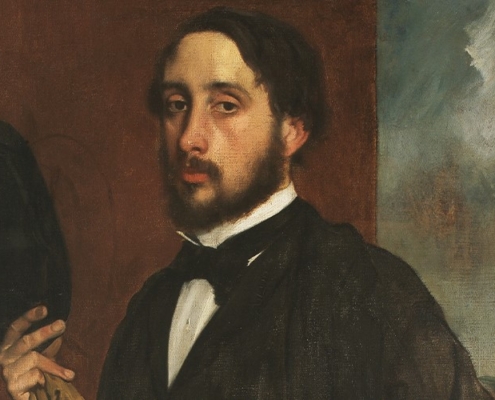
Edgar Degas: Self Portrait 1865-66
It is customary in our political circles to link cultural modernism (and its negative social consequences) to Jewish influence. While there are strong grounds for this stance, things are sometimes more complicated than this narrative would suggest. Take, for instance, the group of painters who made up the French Impressionist movement of the late nineteenth century. Considered to be the first avant-garde movement of the Modernist period, Impressionism served as a springboard for many artistic movements of the twentieth century, including Symbolism, Fauvism, and Cubism. Yet among the leaders of the Impressionist movement were artists, like Cezanne, Renoir and Degas, who were notable for their antipathy to Jews.
Of this trio of leading Impressionists, the one who evinced the keenest aversion to Jews was Edgar Degas (1834—1917) who was described by Jewish artist Camille Pissarro as “that ferocious anti-Semite.” Though Degas is regarded as one of the cornerstone founders of Impressionism, he disliked the name and, indeed, many of the artists who made up the movement. He thought of himself as a realist and “pragmatist” painter first and foremost. But this did not stop him from leading the collective and co-organizing their ground-breaking exhibitions from 1874—86.
The label “impressionist’ was coined by a critic who said their paintings looked unfinished, as if they were “impressions” of a scene rather than finished paintings. While many of Degas’ paintings do look spontaneous, they involved intensive planning. He would study his subjects obsessively, making numerous sketches before starting a painting. He once observed: “I assure you no art was ever less spontaneous than mine. What I do is the result of reflection and the study of the great masters.” He seldom considered a painting complete, always striving to improve it. Degas combined the classical methods he mastered as a youth with Impressionistic sensibilities: he liked to experiment with light, angles, and focus. Sometimes subjects would have their backs to the viewer or be cut off by the edge of the canvas. He would paint them doing mundane things like ironing clothes.
Unlike other leading impressionist artists, Degas shunned landscape painting — the result of personal preference and the visual ailments that plagued him from middle age. Retinal problems led to his having trouble recognizing colors and made it hard for him to see in brilliant light. He therefore appreciated the low light of the theater and developed a strong preference for working there. From the 1870s, Degas explored the subject of dance which accounts for a large portion of his work. He is most famous for his paintings of ballerinas at work, in rehearsal, or at rest. He depicted them from various angles in hundreds of different positions. His failing vision doubtless affected his work, prompting more extensive strokes, bolder colors, and experimentation in a wide assortment of media, including pastels, photography, and printmaking. In his last years, Degas had to wear dark glasses outdoors and quit working altogether in 1912. He died in 1917 at the age of 83.
Despite Degas’s reputation as a reactionary bourgeois, for most of his long life he was a democrat and a republican. Degas mostly kept his politics — and his opinions about Jews — out of his art. Despite this, some critics insist that anti-Semitism “pollutes his pictures, seeping in to them in some ineffable way and changing their meaning, their every existence as signifying systems.” Jewish subjects appear recurrently in Degas’ canvases. Particularly noteworthy is his 1871 oil portrait of Rabbi Astruc, a leading figure in the Jewish world who helped establish the Alliance Israelite Universelle before his appointment as chief rabbi of Belgium in 1866. Regarding Degas’ portrait of Astruc, the Rabbi’s son never forgave the artist for “making a wreck of his splendid subject, replacing his tiny mouth with thin, sensual lips and changing his tender, loving regard into a look of greed.” For him, the portrait was “not a work of art — it is a pogrom.”[i] Degas painted Astruc rapidly, accentuating in his subject what “he though were the traits of his race.” Degas was intrigued by physiognomy: the act of judging individuals from their appearance. Some critics contend that this interest is manifest in Degas’ allegedly unflattering depiction of his Jewish subjects.
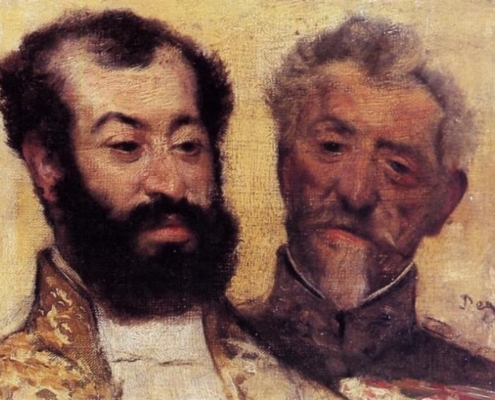
Portrait or pogrom? Portrait of Rabbi Astruc (left) by Edgar Degas (1871)
Degas also depicted Jews in a series of paintings of Parisian brothels and their customers. These brothel scenes include clients whose facial features are recognisably Jewish. Callen argues that, in doing so, and by implicitly constituting Jews as a “racially impure ‘other,’” Degas was attempting to absolve himself and his audience of any potential charge of voyeurism.[ii]
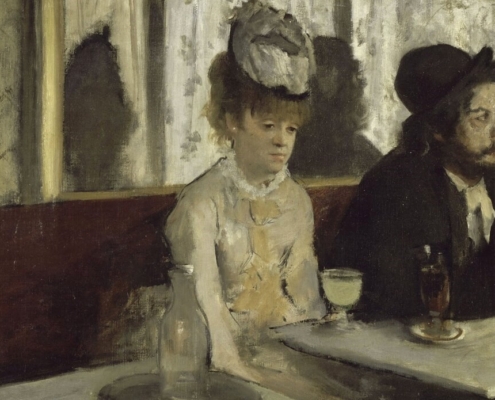
L’Absinthe (The Absinthe Drinker) (1876) by Edgar Degas
Degas’ most famous painting, L’Absinthe (The Absinthe Drinker) from 1876, is considered a masterful representation of social isolation in Paris during a period of rapid industrial growth. This painting was censured as ugly and disgusting and shut away from viewers for a long time until it was introduced again in 1892. Numerous French nationalists (on the left and right) ascribed the immorality and degeneration of French social life encapsulated in this painting to Jewish influence. Jews were seen as “agents of social change; they were symbols of confusion and alteration. Against them, to be safe from the threat they posed, anti-Semites affirmed and invoked a stable social order, stable moral values, immutable and absolute categories.”[iii]
Widely cited by those eager to prove Degas’ anti-Semitic bona fides is his 1879 painting At the Bourse. It depicts the Jewish banker, speculator, and patron of the arts, Ernest May, on the steps of the stock exchange in the company of a certain Monsieur Bolatre.
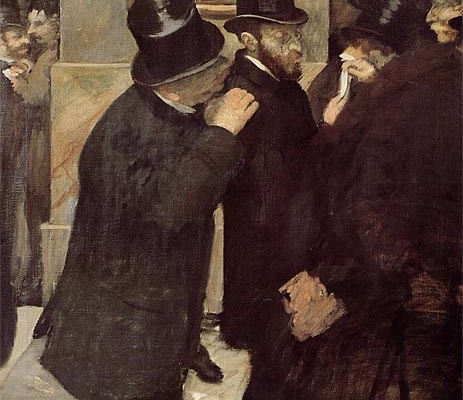
At the Bourse by Edgar Degas (1879)
Regarding this painting, Brown insists “there is a nasty, if subtle, suggestion of anti-Semitism in the depiction of May’s physiognomic traits,”[iv] while for Armstrong, Degas’ “dark slovenly depiction of moneylenders might certainly be inflected with anti-Semitic racism.”[v] Jewish art critic Linda Nochlin claims this painting depicts Jewishness in an “unflattering, if relatively subtle way,” and “draws from the same polluted source of available visual stereotypes.”
It is not so much May’s Semitic features, but rather the gesture that I find disturbing — what might be called the “confidential touching” — that and the rather strange, close-up angle of vision from which the artist chose to record it, as though to suggest that the spectator is spying on rather than merely looking at the transaction taking place. … What is “revealed” here, perhaps unconsciously, through May’s gesture, as well as the unseemly, inelegant closeness of the two central figures and the demeanor of the vaguely adumbrated cast of characters, like the odd couple, one with a “Semitic nose,” pressed as tightly as lovers into the narrow space at the left-hand margin of the picture, is a whole mythology of Jewish financial conspiracy.
That gesture — the half-hidden head tilted to afford greater intimacy, the plump white hand on the slightly raised shoulder, the stiff turn of May’s head, the somewhat emphasized ear picking up the tip — all this, in the context of the half-precise, half-merely adumbrated background, suggests “insider” information to which “they,” are privy, from which “we,” the spectators (understood to be gentile) are excluded. This is, in effect, the representation of a conspiracy. It is not too farfetched to think of the traditional gesture of Judas betraying Christ in this connection, except that here, both figures function to signify Judas; Christ, of course, is the French public, betrayed by Jewish financial machinations.[vi]
This kind of speculative analysis of Degas’ work to establish his anti-Semitism is ultimately superfluous given the artist’s catalogue of statements critical of Jews. Toward the end of his life, Degas, for instance, declared without equivocation: “I detest them, those Jews! An abominable race that ought to be shut up in ghettos. Or even totally eradicated!” Ostensibly unable to conceive of the existence of rational and valid criticisms of Jews, Nochlin insists that “although Degas was indeed an extraordinary artist, a brilliant innovator, and one of the most important figures in the artistic vanguard of the 19th century, he was a perfectly ordinary anti-Semite. As such, he must have been capable of amazing feats of both irrationality and rationalization, able to keep different parts of his inner and outer life in separate compartments.”[vii]
Nochlin draws on the (now venerable) Jewish apologetic trope of characterizing anti-Jewish sentiment as akin to a virus. The fact that Degas, “stubbornly nationalistic, and blinded by fanaticism,” produced ‘At the Bourse’ while still friends with the Jewish author and playwright Ludovic Halévy, suggests, she claims, that this “virus was in a state of extreme latency, visible only in the nuances of a few works of art and intermittently at that. Or perhaps one might say that before the period of the Dreyfus affair, Degas … was anti-Jewish only in terms of a certain representation of the Jew or of particular ‘Jewish traits,’ but his attitude did not yet manifest itself in overt hostility toward actual Jewish people, nor did it yet take the form of a coherent ideology of anti-Semitism.”[viii]
It was the Dreyfus Affair and the writings of Eduard Drumont that supposedly crystalized Degas’ nascent anti-Semitism into a fully delineated ideology. Through such influences, the “virus” of anti-Semitism “mutated” in the 1880s and 1890s from “stereotyped prejudices diffused all over Europe” into an organized movement and ideology (accompanied by the emergence of anti-Semitic literature, leagues and groups). By 1895 the artist was, “in addition to being a violent nationalist and uncritical supporter of the army, an outspoken anti-Semite.”[ix] According to some accounts, he had his maid read aloud from Drumont’s La Libre Parole and Rochefort’s L’Intransigeant. It was these publications that, according to Kleeblatt, “constructed the anti-Semitic identity of men like Degas.”[x]
Despite the conclusion to the Dreyfus affair, there are no signs, according to a biographer, “that he ever thought he had taken the wrong side in the great clash of the two Frances.”[xi] Chrisci-Richardson ascribes his anti-Semitism to his economic vulnerability — as an “inexcusable symptom of his life-long struggle for money and his uncertain social position.”[xii] Born into a well-off family, Degas suddenly experienced financial difficulties in 1874 with the death of his father and the closure of his brother’s business. He was forced to sell his home and started living with the subjects he was painting, offering his paintings as payment. According to Nochlin:
There was a specific aspect of Degas’ situation in the world that might have made him particularly susceptible to the anti-Semitic ideology of his time: what might be called his “status anxiety.” According to Stephen Wilson: “The French anti-Semites’ attacks on social mobility, and their ideal of a fixed social hierarchy, suggest that such an interpretation applies to them, particularly when these ideological features are set beside the marginal situation of many of the movement’s supporters.” Degas was precisely such a “marginal” figure in the social world of the late 19th century and had ample reason, by the decade of the ’90s, to be worried about his status.[xiii]
Degas was adversely affected by the crash of the Union Générale Bank in 1882. This event was widely interpreted as “the result of deliberate action against the Catholic finance house by its Jewish rivals, led by Rothschild.” The crash of the Bank was only one of the financial and business scandals attributed to Jews in France. Others included to Panama scandal (1892), and the failures of Comptoir des Metaux and the Comptoir d’Escomptes. In the aftermath of these scandals, Jewish financiers like the Halevys, the Hasses, the Schlumbergers, the Camondos, the Ephrussis and the Rothschilds, were “viewed with suspicion and thought to be working for the ruin of France.”[xiv]
For Chrisci-Richardson, as well as being a response to “Jewish capitalists monopolizing the wealth of France” and “Jewish workers taking the jobs from French workers,” Degas’ anti-Jewish outlook was also a response to his vision of Jewish immigrants as “carriers of revolution.”[xv] By the 1880s various Jewish revolutionaries had established themselves in Paris, forming revolutionary circles, whether anarchist, anarcho-communist, or, later Bolshevik. Thousands of politically-radical Jews migrated to France, particularly to Paris, between 1880 and 1925. At the time of the Dreyfus trial, 40,000 of the 75,000 Jews in France were concentrated in Paris.
Fellow impressionist painter Pierre-Auguste Renoir also denounced Jews as vectors of political radicalism. According to Nochlin, Renoir was “openly anti-Semitic, a position obviously linked to his deep political conservatism and fear of anarchism.”[xvi] Capps laments that Renoir was an artist “who appeared to embrace the methods of early modernism but none of its revolutionary goals.”[xvii] Renoir maintained there was a good reason for Jews having been repeatedly expelled from countries throughout history, and warned “they shouldn’t be allowed to become so important in France.” He observed that “the peculiarity of the Jews is to cause disintegration.”[xviii]
In her diaries, Renoir’s daughter Julie regularly records her father expressing a variety of anti-Jewish views. In January 1898, during a discussion of the Dreyfus Affair, she quotes Renoir as saying. “[The Jews] come to France to earn money, but if there is any fighting to be done they hide behind a tree. … There are a lot of them in the army, because the Jew likes to walk about wearing a uniform.” Renoir also “let fly on the subject of Pissarro, ‘a Jew,’ whose sons are natives of no country and who do their military service nowhere.” Renoir goes on, “It’s tenacious[,] the Jewish race. Pissarro’s wife isn’t one, yet all the children are, even more so than their father.”[xix]
Renoir’s famous 1880–81 painting Luncheon of the Boating Party, features more than a dozen figures and a dog. One of these figures, a man wearing a hat with his back turned to the viewer, is Charles Ephrussi, a Jewish art critic and collector. From a wealthy Jewish banking family, Ephrussi, the stereotype of the wealthy Jewish banker exemplified by the Rothschilds, played a key role in Renoir’s career. Ephrussi rubbed elbows with the Parisian elite and was an unrelenting networker and social climber. The writer Edmond de Goncourt once observed that “Ephrussi the Jew went to six or seven parties a night, so that he could climb to a position in the Ministry of Fine Arts.”[xx]

Luncheon of the Boating Party (1880–81) by Pierre-Auguste Renoir
Ephrussi helped Renoir find buyers in the French Jewish community — where he gained popularity as a portraitist. Degas was particularly disappointed with what he saw as Renoir’s transformation into a Jewish-society portraitist. In 1880, he wrote: “Monsieur Renoir, you have no integrity. It is unacceptable that you paint to order. I gather you now work for financiers, that you do the rounds with Charles Ephrussi.” Shortly after Degas’ missive, Renoir ended his activity as a society portraitist. Aside from Degas’ chastisement, Renoir became exasperated with his Jewish patrons — especially the Cahen d’Anvers family. Writing to a fellow artist, he protested: “As for the 1,500 francs from Cahens, I must tell you that I find it hard to swallow. The family is so stingy; I am washing my hands of the Jews.” Over the following year, Renoir penned a succession of letters expressing his disdain for Jewish patrons, and severed all ties with the Ephrussi patronage circle. Melanson notes that:
As he renounced his Jewish patrons, and his anti-Semitic remarks became more frequent, Renoir’s wrath was directed at the artist most commonly associated with Jewish high society. [Léon] Bonnat painted almost every member of the salons juifs, including Albert and Louilia Cahen d’Anvers, Charles Ephrussi, Marie and Edouard Kann, Louise Cahen d’Anvers, Mme Leopold Stern, Mme Bischoffsheim, Countess Potocka, Joseph Reinach, Abraham de Camondo, and Henri Cernuschi. Like many society portraitists, Bonnat and his wife became members of high society, particularly the world of the salons juifs.
In the twentieth century, Jacques-Emile Blanche recalled the affinity of “wealthy Jewish financiers” for Bonnat. Blanche was correct in asserting that it was Bonnat, and not Renoir, who was truly the portraitist of Jewish high society. Blanche explained that Renoir’s Jewish patrons were “not at all convinced of [Renoir’s] talent” but were promised by Ephrussi “enormous returns on the sale of Impressionist pictures.” Accusing Jewish art patrons of speculation was a common trope of anti-Semitic discourse, and Blanche’s tone was demeaning when he described Ephrussi’s circle as “rather proud of their audacity” in commissioning portraits from Renoir that ultimately “ended up in the laundry room or were given away to former governesses.”[xxi]
Despite their anti-Jewish views, Jewish patrons and art dealers avidly bought up the work of Degas and Renoir. While Jewish artists of the first rank were few and far between (Pissarro perhaps excepted), Jews still dominated the art scene in Paris in the late nineteenth century as publishers, collector-patrons and dealers. They were, moreover, absolutely committed to the modernist movement, even to the point of making excuses for artists who, like Degas, Renoir and Cezanne, were anti-Dreyfusards and even openly anti-Semitic. Laufer notes that:
At the end of the long nineteenth century, the [non-Jewish owned] Parisian press often described French Jews as greedy, cosmopolitan, materialistic traitors — and avid collectors of modern art. While several of these characterisations are mere anti-Semitic stereotypes, French Jews did make up a disproportionately large number of the supporters of modern artists (particularly of the Impressionists and the Symbolists).[xxii]
In his exposition of the political significance of the widespread Jewish involvement in cultural modernism, the Jewish historian Norman Cantor noted that: “Something more profound and structural was involved in the Jewish role in the modernist revolution than this sociological phenomenon of the supersession of marginality. There was an ideological drive at work.”[xxiii] This ideological drive was the urge to subject Western civilization (deemed a “soft authoritarianism” hostile to Jews) to intensive criticism. The late Jewish artist R.B. Kitaj concurred with this assessment, equating anti-Semitism with anti-modernism. “Jewish brilliance”, he said, “made the modern world.” Jews were agents of change, architects of human unease.[xxiv]
Degas’ status as a Modernist master therefore sits incongruously, for today’s establishment critics, alongside his political conservatism and anti-Semitism. For Brody, the problem of Degas’ legacy “isn’t a matter of anti-Semitism or bigotry per se, but of a bilious repudiation of the world as it runs, or, in a word, modernity.” Echoing Jewish responses to Richard Wagner, critics have, in recent decades, confronted the “problem” of Degas’ legacy by character assassination — recent articles about the artist abound with epithets like “cruel,” “misanthropic,” “misogynist,” and “embittered man as well as a bigot.” Criticism inevitably centers on his adherence to a “virulent belief system” which, it is argued, is unredeemed by the sublimity of his art.
Brenton Sanderson is the author of Battle Lines: Essays on Western Culture, Jewish Influence and Anti-Semitism, banned by Amazon, but available here and here.
[i] Gabriel Astruc, La pavillon des fantomes: souvenirs (Paris, D. Grasset, 1929), 98.
[ii] Anthea Callen quoted in: Washton-Long, Baigel & Heyd (Eds.) Jewish Dimensions in Modern Visual Culture: Anti-Semitism, Assimilation, Affirmation, (Waltham MA: Brandeis University Press, 2010), 166.
[iii] Roberta Crisci-Richardson, Mapping Degas: Real Spaces, Symbolic Spaces and Invented Spaces in the Life and Work of Edgar Degas (1834-1917) (Cambridge: Cambridge Scholars Publishing, 2015), 31.
[iv] Marilyn R. Brown, Degas and the Business of Art (University Park: Penn State Press, 1994), 130.
[v] Carol M. Armstrong, Odd Man Out: Readings of the Work and Reputation of Edgar Degas (Getty Research Institute, 2003), 282.
[vi] Linda Nochlin in: Maurice Berger (Ed.) Modern Art And Society: An Anthology Of Social And Multicultural Readings (New York: Basic Books, 1994), 30.
[vii] Linda Nochlin, “Degas and the Dreyfus Affair: A portrait of the artist as anti-Semite,” Tablet, January 4, 2019. https://www.tabletmag.com/sections/arts-letters/articles/degas-and-the-dreyfus-affair
[viii] Nochlin, Modern Art and Society, 35.
[ix] Linda Nochlin, The Politics of Vision: Essays on Nineteenth Century Art and Society (Taylor & Francis, 2018),
[x] Norman Kleeblatt, “The Dreyfus Affair: Art Truth and Justice,” Polin: Studies in Polish Jewry Volume 5: New Research, New Views (United Kingdom: Littman Library of Jewish Civilization, 2008) 425.
[xi] Roy McMullen, Degas: his life, times, and work (London: Secker & Warburg, 1985), 444.
[xii] Roberta Chrisci-Richardson, Mapping Degas: Real Spaces, Symbolic Spaces and Invented Spaces in the Life and Work of Edgar Degas (1834-1917) (United Kingdom: Cambridge Scholars Publishing, 2015), 12.
[xiii] Nochlin, Modern Art and Society, 39.
[xiv] Stephen Wilson, Ideology and Experience: Anti-Semitism in France at the Time of the Dreyfus Affair (United Kingdom: Littman Library of Jewish Civilization, 1982), 170.
[xv] Chrisci-Richardson, Mapping Degas, 297.
[xvi] Nochlin, Modern Art and Society, 25.
[xvii] Kristin Capps, “Why Absolutely Everyone Hates Renoir,” The Atlantic, October 15, 2015. https://www.theatlantic.com/entertainment/archive/2015/10/why-everyone-hates-renoir/410335/
[xviii] Manet, Julie, Growing up with the Impressionists: the diary of Julie Manet (London: Sotheby’s Publications, 1987), 129.
[xix] Ibid., 124.
[xx] Menachem Wecker, “Was Renoir Anti-Semitic?,” National Review, November 18, 2017, https://www.nationalreview.com/2017/11/renoir-and-friends-exhibit-phillips-collection-was-renoir-anti-semitic/
[xxi] Elizabeth Melanson, “The Influence of Jewish Patrons on Renoir’s Stylistic Transformation in the Mid-1880s,” Nineteenth-Century Art Worldwide, Vol. 12(2), 2013.
https://www.19thc-artworldwide.org/index.php/autumn13/melanson-on-renoir-and-the-influence-of-jewish-patrons
[xxii] Mia Laufer, Jewish Taste: Modern Art Collecting, Identity, and Antisemitism in Paris, 1870-1914 (St Louis: Washington University Open Scholarship Institutional Repository, 2019), Abstract. https://openscholarship.wustl.edu/art_sci_etds/1814/
[xxiii] Norman Cantor, The Sacred Chain: The History of the Jews (New York, HarperCollins, 1994), 303.
15 Norman Lebrecht, Why Mahler? How One Man and Ten Symphonies Changed the World (London: Faber and Faber, 2010), 155-6.
